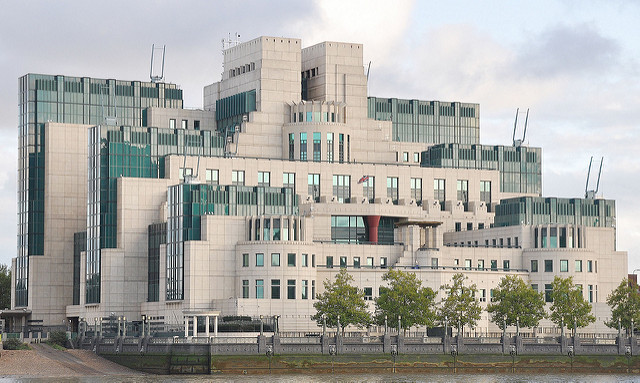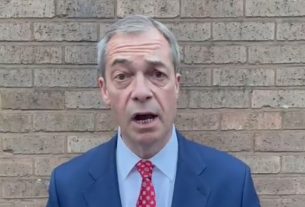The head of the British Secret Intelligence Service MI6 says the UK’s enemies should not underestimate our ability to respond to the threats they pose.
In a rare public speech, Alex Younger also questioned why Chinese companies were permitted to be involved with the UK’s 5G mobile network.
He was speaking at his former university, St Andrew’s in Scotland, where he graduated with a degree in economics and computer science.
Younger joined MI6 from the Scots Guards and said his first mission was penetrating a group ‘intent on genocide’ in the Balkans.
The mission, in the mid-1990s, saw him travelling under a false identity and spending ‘many nights drinking obscure homemade alcohol’ to build relationships.
Younger, known as ‘C’ at MI6, said Britain’s intelligence services must react quicker than their opponents to cope with the multiple threats they pose.
He said our adversaries were in a state of ‘perpetual confrontation’ with the UK and were using methods that ‘fall short of traditional warfare.’
Russia
Younger said Russia was active in ‘hybrid warfare’ which included cyber-attacks but added that the UK had the capability to respond.
He also highlighted Russia’s poisoning of its former spy Sergei Skripal and his daughter Yulia by operatives using the nerve agent Novichok in Salisbury this year.
Skripal had come to the UK in a spy swap after being pardoned by Russia and Younger said it had been assumed this meant he was not at risk.
He added: “To the extent that we assumed that had meaning, that is not an assumption we will make again.”
The UK’s response was designed to make Russia aware that acts such as this were not worth the risk, said Younger.
Russian intelligence officers had been expelled by the UK and its allies, reducing its intelligence-gathering capacity.
Younger added that even though Russia’s aim was destabilisation, the UK did not intend to do the same: “If that country responds positively, so would the UK.”
China
Younger said Australia and New Zealand had banned Chinese company Huawei from supplying equipment for their 5G mobile network.
Other countries have also expressed concern and he said Britain must decide how comfortable it is with the Chinese having ownership of the technology here.
Amid concerns that allowing China to build new 5G networks would pave the way for sabotage or spying activities, he said the UK had ‘some decisions to make.’
Chinese firm Huawei has already worked on previous UK communications projects, but Younger said a conversation must be had about their future involvement.
“We need to decide the extent to which we are going to be comfortable with Chinese ownership of these technologies and platforms.”
Technology
Younger said MI6 was leading a ‘fourth generation’ of espionage to ensure technology worked to the country’s advantage.
He added that a lot of the agency’s work had not changed and involved understanding the ‘motivations, intentions and aspirations’ of adversaries.
But he said data analytics have led to greater transparency, as evidenced by journalism collective Bellingcat’s exposure of those involved in the Skripal attack.
Younger said this demonstrated that spies could no longer rely on traditional cover tactics to move around the globe using false identities.
Cyber was now the fastest growing MI6 directorate and Younger said: “Our task now is to master covert action in the data age.”
Terrorism
Younger revealed that MI6 had helped to disrupt multiple terrorist attacks against France and Germany inspired by Islamic State.
He said that – regardless of the Brexit outcome – MI6 will always work with to ‘strengthen our indispensable security ties with Europe.’




